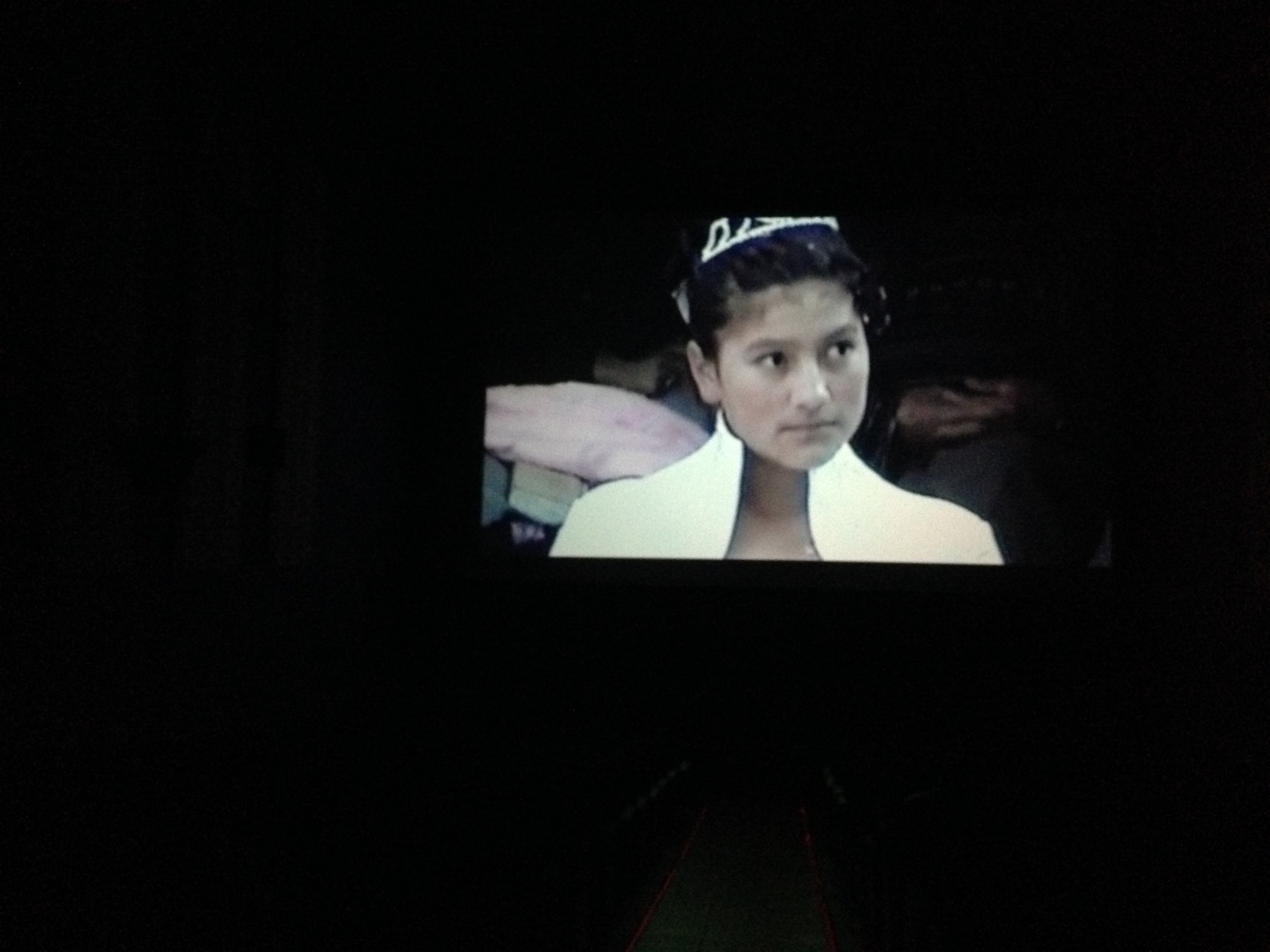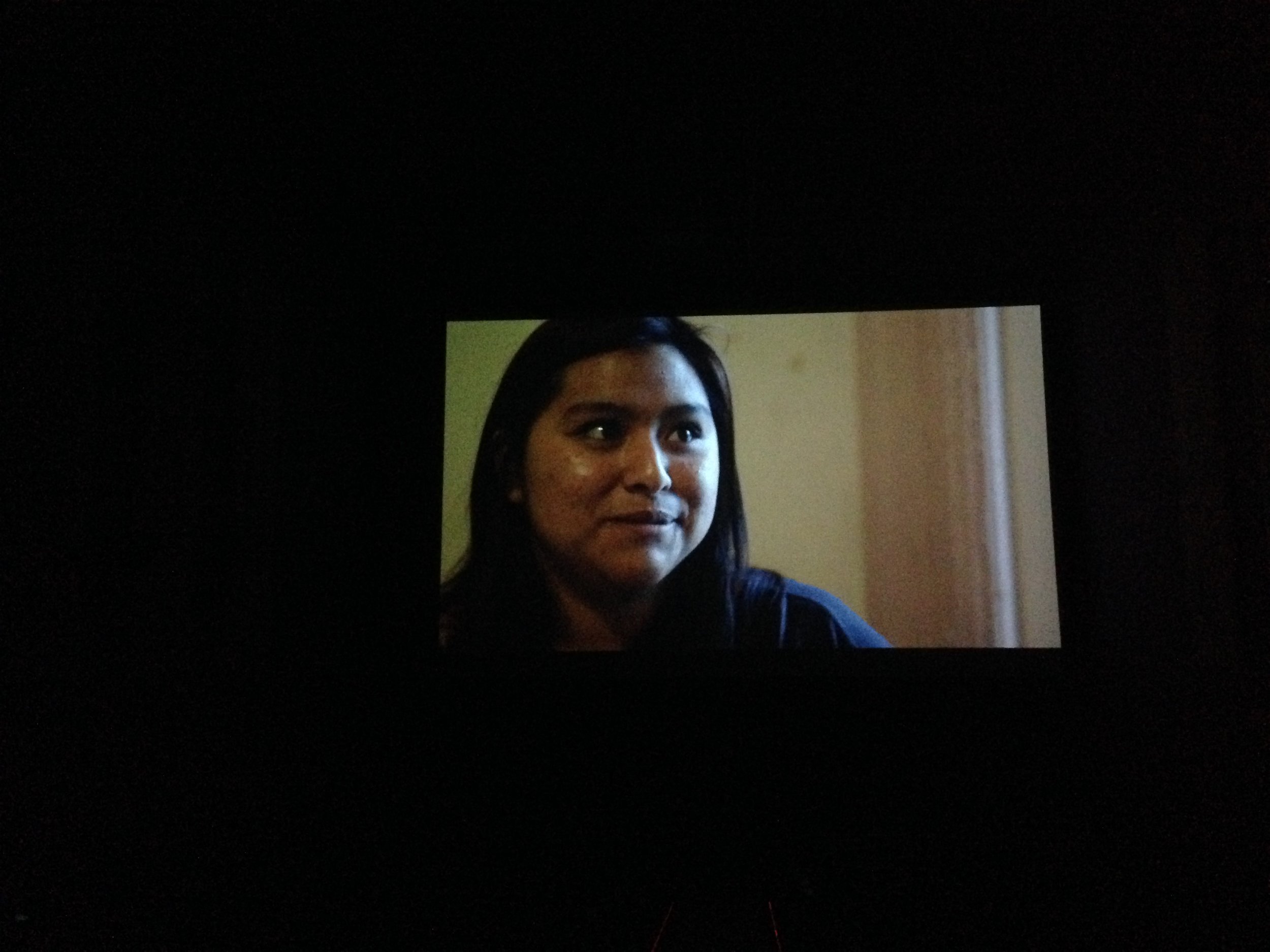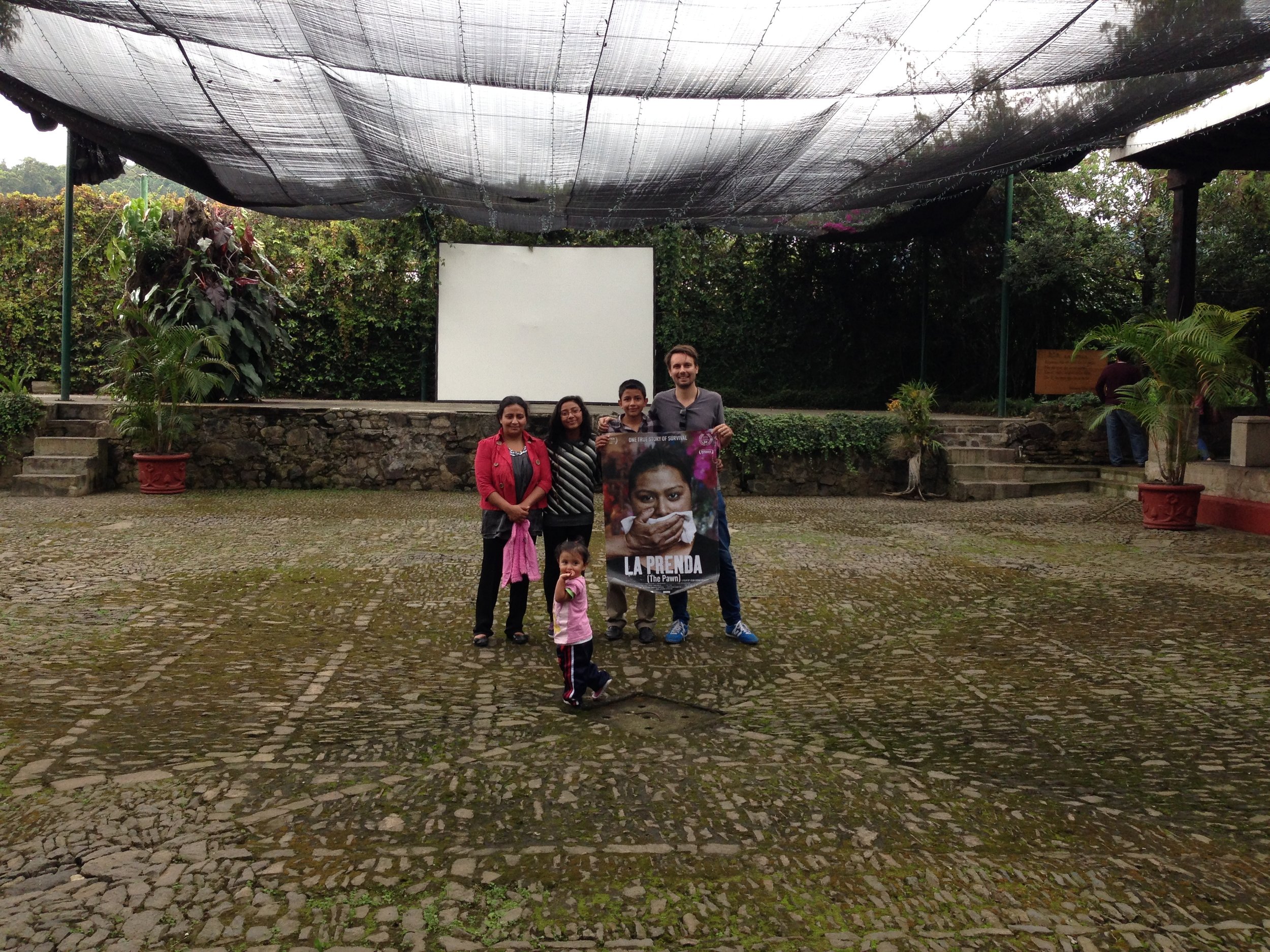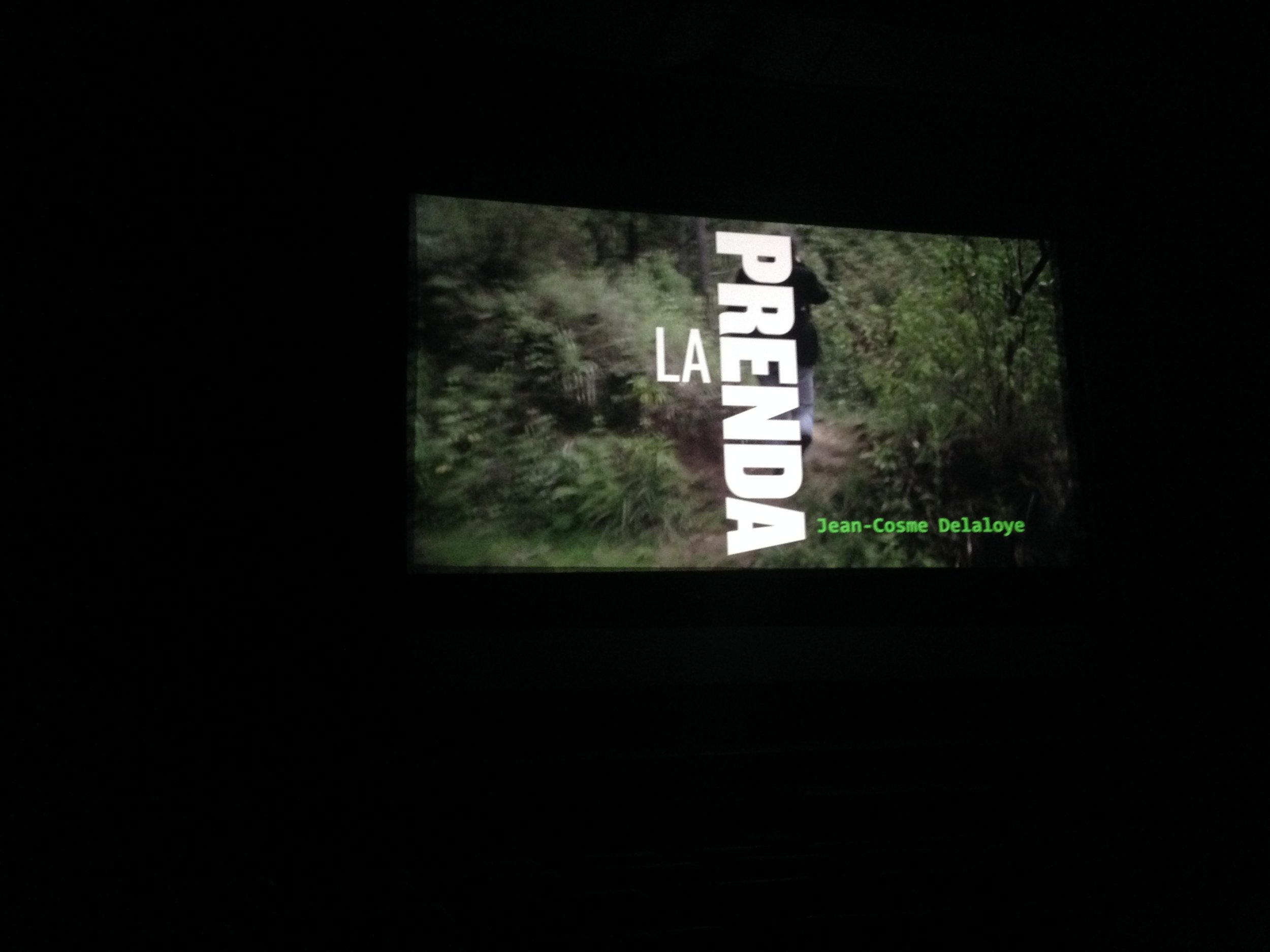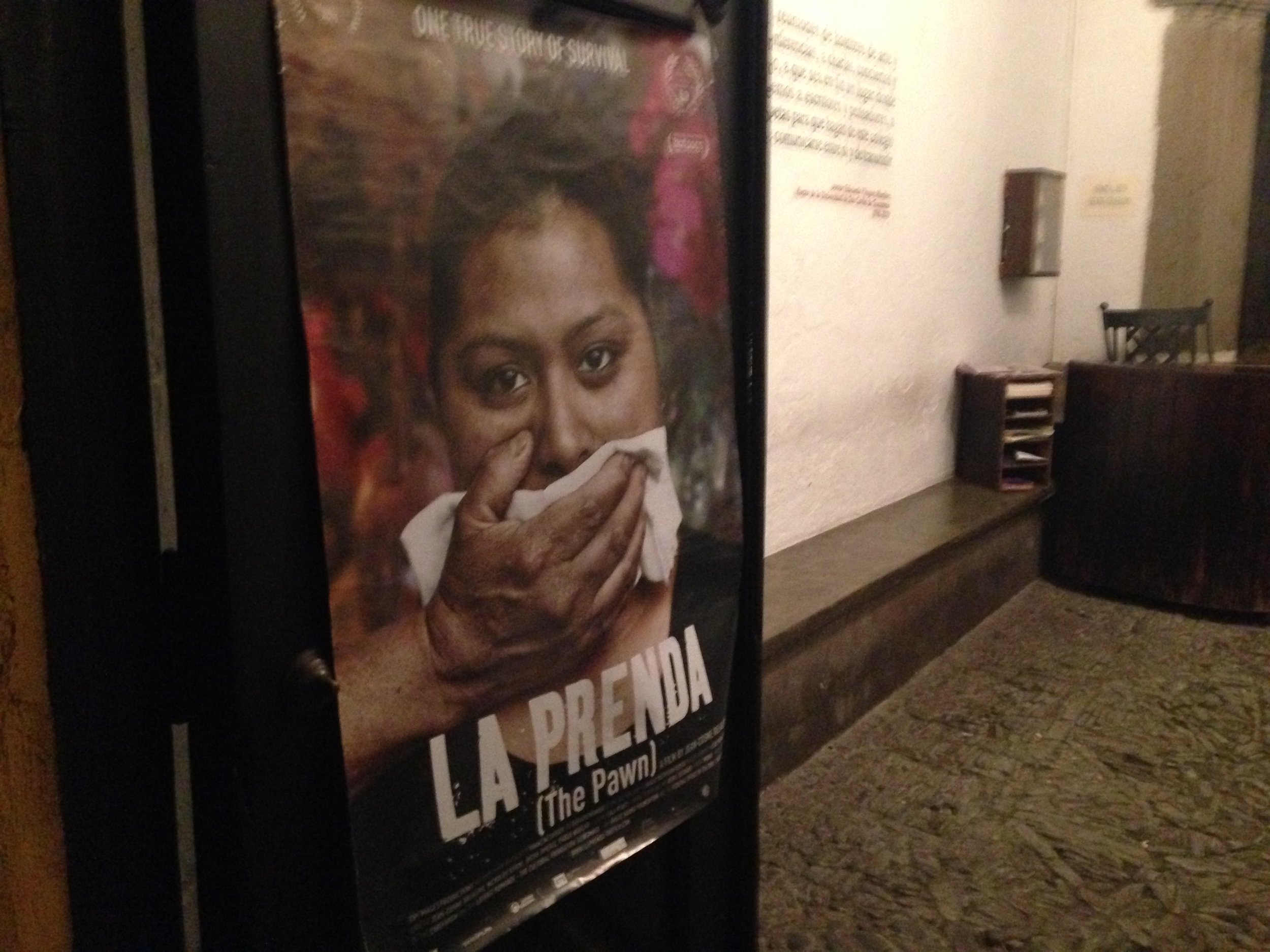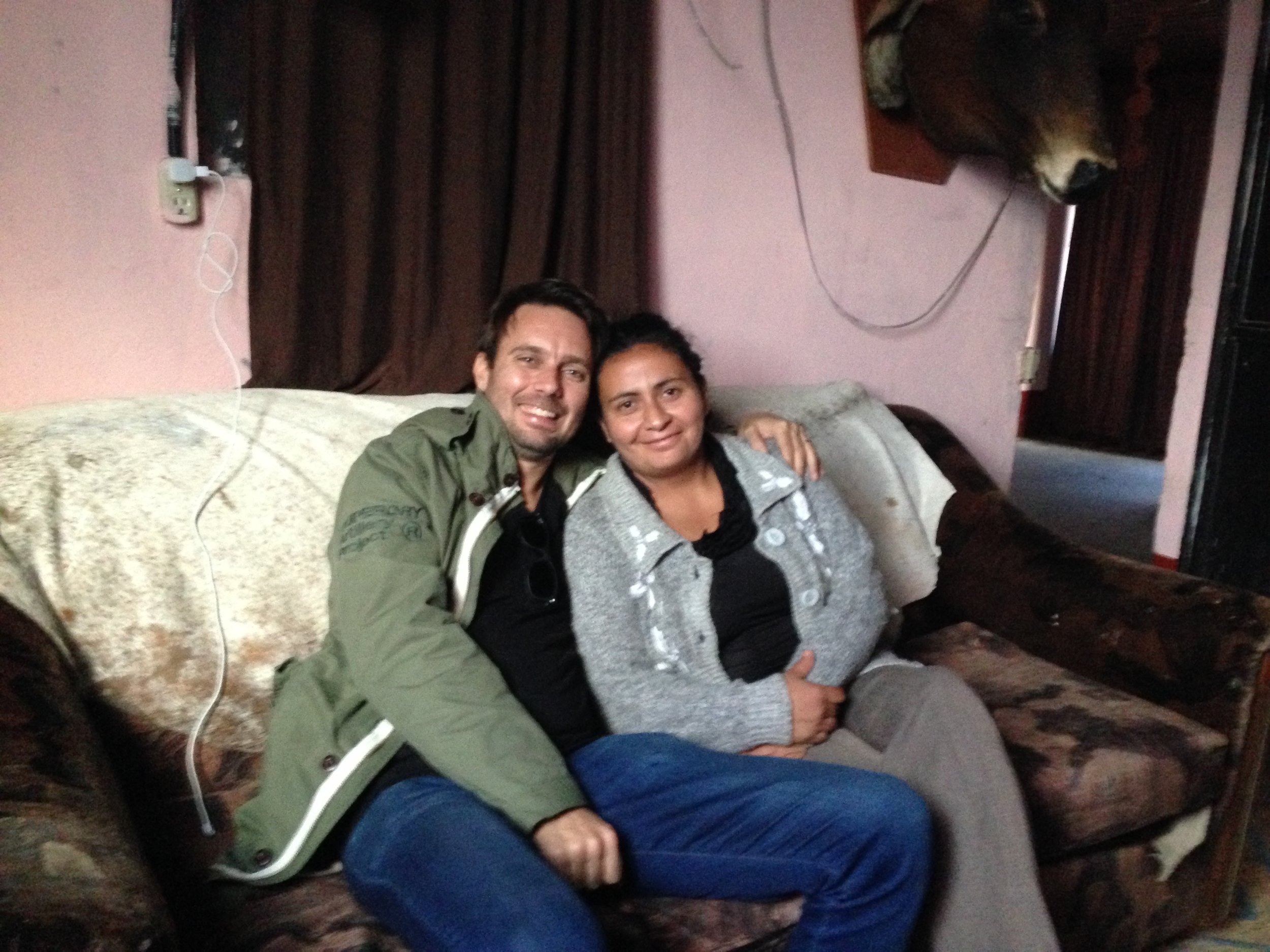RIP Wilfredo
The world lost a beautiful and courageous soul yesterday. Wilfredo Macario died of Covid-19 on August 16, 2021, in Quetzaltenango, in Guatemala. In 2013, Wilfredo and his family welcomed me into their home and agreed to share their painful story for my film LA PRENDA (The Pawn). This film premiered at Hot Docs and screened everywhere because their story and their resilience were so powerful and I am forever indebted to them. As a documentary filmmaker, the best result you can achieve is to take good care of the story you have been gifted by courageous people like Astrid, Wilfredo and the entire Macario family. I hope to that day I did it. Let me share this short piece I put together so that hopefully, you can get a glimpse of this man's big heart. RIP Wilfredo.
Meet Dolores, a Guatemalan mom who was separated from her 2 daughters in the U.S.
Dolores and her children in Texas.
Dolores Suy Ramos vividly remembers the day she was separated from her two daughters, Candelaria, 12 years old, and Yashmi Mileydi, 3 years old, by the U.S. authorities. It happened on June 5, 2018 in Dalhart, a small rural town in Northern Texas. "They arrested and jailed me," said the 28-year-old Guatemalan mother, who used to live in the U.S as an undocumented immigrant. "When they deported me a year later, I asked to see my daughters, but they told me I wasn't allowed to."
Dolores used to live in this trailer in Dalhart, Texas. Jean-Cosme Delaloye
This mother’s quest to be reunited with her two children looks like a lost cause. Dolores doesn't know where to search or whom to talk to. She now lives alone in a remote valley in rural Guatemala far from the country’s capital. In this remote region, Internet connection remains a luxury Dolores simply cannot afford. And since Candelaria and Yashmi Mileydi were separated from her, she has never been able to communicate with her two young daughters, who are now living with a foster family in Texas and who could be adopted out .
Dolores’ children are now considered abandoned by their mother in the U.S.. "I never abandoned them and I never signed any document to authorize their adoption", Dolores claimed raising her voice. “I need my daughters and they need the love that only their mom can give them. But I don't know where they are or how they're doing today. "
The children were temporarily housed in this villa in Lubbock, Texas.
“I need my daughters and they need the love that only their mom can give them. But I don’t know where they are or how they’re doing today. ”
Candelaria and Yashmi Mileydi are among the thousands of children separated from their migrant parents by the Trump administration since 2017. The policy was intended to deter illegal immigrants to try to cross the border into the United States. It consisted not only of separating families who were arrested at the border with Mexico. It also did not spare families of undocumented migrants like the family of Dolores who were already living in the United States.
U.S. President Joe Biden signed an executive action on February 2 2021 to create a task force, whose goal is to try to reunite these families. But this endeavor will surely prove to be extremely difficult. Dolores is one of hundreds of parents deported to Central America without their children and who are now completely invisible to the Biden administration.
Dolores now lives in this remote valley near Joyabaj in Guatemala. Jean-Cosme Delaloye
Furthermore, the time that that went by since the separations threatens to create another trauma for the children placed with their own family members living in the United States or with foster families. "I'm afraid Candelaria, the older one, now thinks I gave her up," Dolores said. “When the judge sentenced me, he told me that I no longer had custody of my children, but that they would have a good life in the United States. I doubt it, because when she was with me, Candelaria was chubby. In the last picture I saw of her, I found her skinny. "
The story of Dolores was published on February 3, 2021, in the Swiss daily newspaper 24 Heures.
Dolores still has siblings in Texas who are now her only source of information about her children. “The last time I spoke to my younger sister in November, she told me that Candelaria and Yashmi had not been adopted yet, but that's all I know,” she said, sounding anxious.
“Can you help me get my children back?”
In this race against the clock to try to get her daughters back, Dolores learned to accept the silence of the American and Guatemalan authorities in the face of her requests. She even got used to the idea of permanently losing custody of her youngest daughter, who was born in the United States. "Yashmi is a U.S. citizen and I don't think I'll be able to get her back," she said sounding sad. “But Candelaria was born in Guatemala. She therefore has the right to come back here. ” After about 20 minutes, the phone conversation, which kept being interrupted by connection issues, ended with this heart-wrenching question from Dolores: "Can you help me get my children back?"
The original story was published in French on February 3, 2021, in the Swiss daily newspapers 24 Heures and Tribune de Genève.
Featured in Twilight Talks on CUNY TV
On Tuesday March 26, 2019, I was interviewed by Kevin Moore for his talk show Twilight Talks on CUNY TV. We discussed the kind of documentary films I do, the role of a journalist dealing with a tragedy, the current administration, etc. I hope you will be able to check it out here.
La Prenda [The Pawn] broadcast on Swiss TV
When you start working on a documentary film, you have to be ready for a marathon during which you will have to deal with highs, lows, intense emotions, rejections, frustrations, anguish, excitement. You will have to hustle, convince, think, imagine, find solutions and take risks.
I started working on LA PRENDA - THE PAWN six years ago. At the time, I had just finished BY MY SIDE, a film I produced myself. I was screening it at the Icaro Festival in Guatemala in November 2011 when I decided to do a follow up on an audio documentary on kidnappings in Guatremala I had done for Swiss Public Radio. I met Rodolfo Diaz, a lawyer of the Sobrevivientes Foundation. He was representing the family of Kelly Diaz, a teenager who had been kidnapped for a ransom and ultimately been killed.
Kelly Diaz.
When I heard about the brutality of that case, I thought that it would have made headlines around the world if it had happened in the US or in Europe. Before she was killed, Kelly had been tortured and raped. Her pelvis had been fractured. Her body was found days later in the woods.
@ElQuetzalteco
I decided to start doing a film on Kelly's story, without thinking twice about it. The next morning, I hired a cameraman and we drove 4 hours through Guatemala to Quetzaltenango, where I met with Karin Gramajo. Karin is Kelly's cousin and she has been fighting for justice for Kelly for the past 7 years despite the threats she has had to deal with. Karin should have been a lawyer but could not afford to finish her studies. So she helps people with their legal fights against the widespread impunity in Guatemala. If Karin hadn't agreed to be in La Prenda, there would have been no film. But she did agree and we embarked on an incredible journey together.
Karin Gramajo in Quetzaltenango.
We were soon joined by Astrid Elias, a courageous young woman living in Los Angeles, who had been kidnapped and raped as a child in Guatemala. I remember the call I received one day from Azalea Vazquez, a witness in Astrid's political asylum case in Los Angeles. Azalea had heard I was looking for another case of kidnapping for my film and she decided to reach out to me. In a documentary film, there are moments like that. You feel you are stuck because the story is so sensitive that people can't share it. And suddenly a door opens. Thanks to Azalea, I was able to speak with Andrea Garcia, Astrid's lawyer, and with Astrid herself. Astrid is a shy young woman, who had been kidnapped and raped in Quetzaltenango when she was 14 years old. After a ransom was paid by her family, she was released and stayed at her grandparents' home without leaving. Once she started going out again a year later, she was threatened again. So her parents who lived in Los Angeles, decided to make her come to the United States with her younger sister. But Astrid was caught by the border patrol while she was trying to cross into the United States and she was facing deportation when I first met her. While fighting for her life, she decided to let me document her ordeal.
Astrid at the 2016 FIFDH in Geneva. ©Miguel Bueno, FIFDH
Andrea Garcia, Astrid's lawyer, at the FICG in Los Angeles. ©Juan Tallo, FICG in LA
In a world where journalists are under constant attack and ignorantly labeled as fake news by some people, Astrid gave me the opportunity to go to the bottom of her story over the next 2 years. When she was facing deportation, we were there. When she was praying for a reprieve, we were there. When she went to her final court hearing, we were there. Her family embraced us. They showed us a courage I have seldom been exposed to. They trusted with a story, their story.
Estella and Alberto, Astrid's parents, on the red carpet of the FICG in LA at the Egyptian Theater in Hollywood. ©Juan Tallo, FICG in LA
A film is a team. And thanks to all the people who decided to work on it, produce it, support it and finance it, we were able to get it done in 2 years. The response has been incredible. It premiered in 2015 at Hot Docs and at the prestigious Guadalajara Film festival. It screened in some of the best festivals in the world such as Thessaloniki, Mill Valley, Havana, FIFDH, San Sebastian. It screened at the Egyptian Theater in Hollywood, at Lincoln Center in New York as part of the Women in the World Summit. Astrid got to share the stage with Meryl Streep, America Ferrara, Microsoft exec Brad Smith and many others. The film won several awards and it is still going around the world as part of the FIFDH on tour. Last month, it screened in Guatemala and sparked a debate on human rights and justice with a Guatemalan Supreme Court judge.
Despite its big success in festivals, it took time for La Prenda - The Pawn to be broadcast on TV. That changed on May 14, 2018, as the film screened on Swiss Public Television RTS in Switzerland. As a filmmaker, I feel I finally reached the end of the marathon of La Prenda. I can let this film go even if Kelly, Astrid, Micaela and their families will always remain in my heart.
Sobrevivientes lawyer Rodolfo Diaz, Jean-Cosme Delaloye (director of La Prenda), Astrid Elias and Luisa Ballin at the FIFDH in Geneva. ©Miguel Bueno, FIFDH.
As a documentary filmmaker, you never stop running. But you will always cross paths with people that inspire you and push you forward. My next goal is to finish my new film's marathon. I am getting close to it as we will announce a major US release for Stray Bullet in the next few weeks.
The family of 12-year-old Genesis Rincon celebrating her birthday a few months after her death. Scene from Stray Bullet.
LA PRENDA is coming home
You make documentary films for nights like these. On April 19 2018, LA PRENDA screened in the magnificent auditorium of the Mexican embassy in Guatemala City. This special screening took place in the context of the FIFDH Human Rights Festival on Tour to commemorate the 70th anniversary of the Universal Declaration of Human Rights. After an incredible festival run that started in 2015 at Hot Docs and at the Guadalajara Film Festival, LA PRENDA came home. We missed Astrid, one of the protagonists who lives in Los Angeles, Kelly's family and Micaela's family. But Karin and Rodolfo, 2 of the main protagonists of the film, spoke for them.
Kelly Diaz Reyes was kidnapped and killed in March 2011.
Astrid Elias in La Prenda.
They shared the stage with Supreme Court judge Maria Eugenia Morales Aceña during one of the best Q&A the film ever had. LA PRENDA sparked discussions at the highest level of Guatemalan justice system. The protagonists' quest for justice impressed Justice Morales Aceña. "The film teaches me about the life of the children is a "prenda" (a jewel)", she said after watching LA PRENDA. "It is so precious that we have to defend it. The most important thing is to try to prevent these cases".
Supreme Court judge Maria Eugenia Morales Aceña at the Q&A for LA PRENDA with Sobrevivientes lawyer Rodolfo Diaz and Karin Gramajo Lopez. Guatemala City, April 19, 2018.
Swiss ambassador Hans-Ruedi Bortis presenting LA PRENDA on April 19, 2018, in Guatemala City.
In Kelly Diaz Reyes' case, justice hasn't been achieved yet. The teenager was kidnapped and killed 7 years ago but her family is still fighting with the lawyer Rodolfo Diaz and the Sobrevivientes Foundation to make sure the convicted murderers are not released prematurely. A visit to the "Casa de la Memoria" (House of remembrance) in Guatemala City is a powerful reminder that these cases keep happening and that people keep disappearing.
Nights like these inspire you to keep going and to keep hustling to make films that matter. Because ultimately, you get to meet courageous people like Karin, Astrid, Rodolfo, Norma Cruz, Fernando Carac Saquic, Hortensia Reyes, Don Chepe, who trust you with their story. LA PRENDA was our attempt to make it shine and to make sure it is not lost on anybody who watches the film. That is why it was such an honor to receive last night the Icaro best documentary award the film had won in 2015 when it first screened in Guatemala. It is hard to measure the real impact of a film but this award means that the voices of Karin, Astrid, Kelly, Fernando and all the other protagonists of LA PRENDA have been heard in their own country.
Jean-Cosme, the director of La Prenda, with Karin Gramajo Lopez, Rodolfo Diaz, Maria José Gramajo and 4-year-old Maria Fernanda Gramajo
LA PRENDA (THE PAWN) at the Tolerance Film Festival in Slovenia
My film LA PRENDA (THE PAWN) about the kidnapping and rape of young women in Guatemala is screening today at the Tolerance Film Festival in Slovenia almost 3 years after its World Premiere at Hot Docs. The next screening is scheduled on April 12 at the Swiss embassy in Guatemala City in the context of the FIFDH human rights festival world tour.
Blog:
Find the latest news about Jean-Cosme’s films, as well as behind the scenes stories.






















